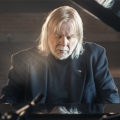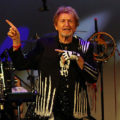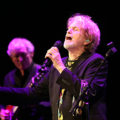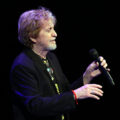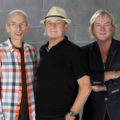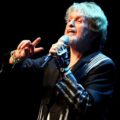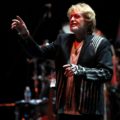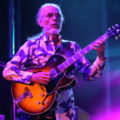Celestial Yes singer Jon Anderson recruits “1000 Hands” for vision three decades in the making
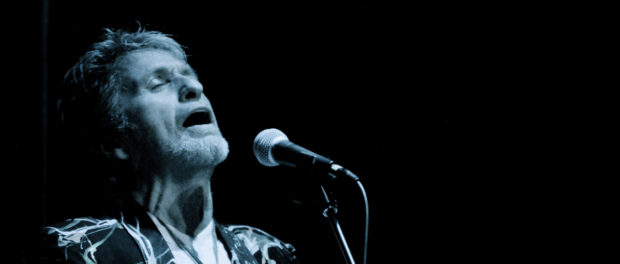 Photo provided by Tami Freed
Photo provided by Tami Freed
Even though Jon Anderson’s immensely anticipated album, “1000 Hands, Chapter One,” was a whopping three decades in the making, there’s a perfectly reasonable series of explanations for the unusual delay.
For starters, the Rock and Roll Hall of Famer hasn’t exactly had much of a breather singing for various line-ups of Yes, stretching out on his own or recording with Greek composer Vangelis, French violinist Jean-Luc Ponty and Swedish guitarist Roine Stolt (not to mention various health setbacks he’s since beat), while his lengthy guest list of collaborators could’ve easily taken a lifetime to compile.
In addition to featuring several members of that pivotal progressive and classic rock collective he founded, the project overflows with the renowned likes of jazz giant Chick Corea, Jethro Tull’s Ian Anderson, Deep Purple’s Steve Morse, Journey’s Jonathan Cain, Kansas’ Robby Steinhardt, Toto’s Bobby Kimball, the Tower Of Power horn section and so many more.
Chicago Concert Reviews rang the superstar with the celestial voice behind “Roundabout,” “I’ve Seen All Good People” and “Owner Of A Lonely Heart” (all of which he co-wrote) at home in California about this mammoth venture, the pursuit of genuine art over greed, personal hopes for humanity, plus the past and possible future of Yes.

Photo provided by Deborah Anderson
Jon Anderson: I don’t know. I’m just very blessed. I’m very happy. I’ve got a wonderful, beautiful wife, and family, and grandchildren who are all on my spiritual awakening every single day of my life. I wake up to the spiritual bond that surrounds us all. It’s very, very, very powerful to be able to just wake up and, you know, wash the dishes (laughs), make breakfast, then come to my studio, sing and do work.
Since we’ve been in quarantine for the last five months, I’ve created quite a lot of projects that I need to finish [including] a long form project I want to release in [three] sections, rather than put it all out at once. It’s like chapter one of “1000 Hands” and chapter two is vying for next Christmas, maybe in 2021, so we just know there’s so much music around in our world. It’s always a healing process. We’re going through so much, especially in America…
Could you share a bit about the “1000 Hands” theme?
Anderson: The first thing is to live in the moment, to live in the now. Don’t think about the future, don’t think about the past, just get on with loving yourself, loving everyone around you, believing in yourself, and believing in everyone around you because this is all we’ve got, you know? It’s about time we understood the pressure of not believing in other people’s religions. Every religion says the same thing. There’s only one god and he’s not white, that’s for sure…
We’re from the ‘60s. We’re hippies. Peace, love and to make love not war…It’s funny, every time I did a show of “1000 Hands,” I was saying “next year, 2020, is going to be amazing because it’s gonna just be like the ‘60s,” not realizing that this was gonna happen. I obviously had a “change we must” sort of feeling. We must change our perception of politicians, our perception of lives, our perception of mother earth. There’s an amazing movie coming out called “Kiss The Ground.” It gonna really, really mesmerize people around the world. I’m just writing a song for the release of the movie.
Were there any changes from the version of “1000 Hands” you sold at shows to the new release on Blue Elan Records?
Anderson: No, it’s the same. We couldn’t find a record company last year. We found this particular record company in Los Angeles through my PR guy, Michael Jensen, a brilliant man. This record company’s really sweet and very interested in music. The guy’s got so much money, he doesn’t care about how much money he makes. He’s just so happy to release good, quality music. He fell in love with the album and put it out [on July 31]. Hey, it took 30 years to get it together. Another extra couple of years didn’t matter!
 Did you expect this record to take as long as it did or were you specifically wanting to take your time?
Did you expect this record to take as long as it did or were you specifically wanting to take your time?
Anderson: It wasn’t that. I just had the tapes in my garage that never got finished. You go on tour, and then you make a record, you do this, you do that, and you forget about things that you created in 1990. I did so much work in the 1990s, it was kind of blinding. I just finished working with ABWH [Anderson Bruford Wakeman Howe], and touring that, and then I did the music of “1000 Hands.” I also did two more projects around the same time. I think it’s because I was releasing energy from the trappings of being with Yes, and then moving on, getting on with my life, and just letting go of a lot of things.
I recorded most of the songs [from “1000 Hands”] with my friend, Brian Chapman, who actually was in my first band The Warriors…The producer, Michael Franklin, got in touch and said “send the tapes. Let’s get on with this record because I’ve got more money and we can bring in people who you like.” I gave him a list of people that I like, and he gave me a list of people that he knows, and that’s how it all happened.
Who are some of the collaborators you think listeners will be most surprised to hear?
Anderson: Well, it’s funny that I got [original Yes bassist] Chris [Squire] and [longtime Yes drummer] Alan [White] to play on a couple of tracks in 1990 cause they were in Los Angeles. The last person to play on the record was [veteran Yes guitarist] Steve Howe. It’s kind of a [composite] of what Yes truly is, you know? There’s something magical about me being in Yes. I believe what I do is Yes. I’m not in the Yes band, but I constantly think everything that I do is Yes. The fans of Yes will understand everything that I do.
Working with all these incredible musicians, you have a track, which sounds pretty good, and then you add Billy Cobham, and all of a sudden it gets better. Then you get Chick Corea to play on it and you go “oh, my God.” [Then] Jean-Luc Ponty, and all of a sudden, the track, “1000 Hands (Come Up),” is musical heaven. You bring in a very simple song, “Makes Me Happy,” which is just a song that I wrote in 2018 when we were doing the record. You put on Tower Of Power and it’s just amazing. What the hell? (laughs)
How is your relationship with Steve Howe’s edition of Yes these days? Will there ever be a “Re-Union”?
Anderson: Well, I’m sure. You know, I have no problems about doing some concerts with everybody. The question is, “does everybody want to do the same thing without managers?” No managers allowed! Keep the sharks at bay. The managers screw up bands- always have been, always will be.
Will Yes featuring ARW [with ‘80s/‘90s guitarist Trevor Rabin and classic era keyboardist Rick Wakeman] resume or is that chapter closed?

Yes featuring ARW
What does Yes music mean to you?
Anderson: That’s what I do every day. I create Yes music. It’s like an adventure in music form. I don’t know what I’m going to be doing next. I woke up today because of this wonderful movie coming out, “Kiss The Ground.” I have a song for this, and I found it, and sent it to the lady who’s organizing the production of that movie, which is coming out in September I believe. I sent it to my friend, locally here, who’s an orchestrator. I’ll probably sing it this week with a full orchestra sound and it’s Yes music (laughs).
I’ve recorded the name and I own a percentage of the logo. I’ve never used it because I didn’t really want to, but now I’m feeling that “1000 Hands” is gonna reach so many people and a lot of people will say “oh, this Jon Anderson guy’s still alive?” And I’ll say “yes.” I’m still Yes in my heart, and soul, and nobody can stop that, you know?
How did your Rock and Roll Hall of Fame experience go?
Anderson: It was really a lot of fun. [Before we performed], I got on stage and I hyperventilated. You’re in front of 10,000 people, and we’re not playing a song or anything, just standing there looking silly. Rick was fantastic telling the jokes. That was good. It broke the ice for me.
At any point, is there a specific concert you played in Chicago that stands out?
Anderson: One concert I’ll never forget was really at the beginning of Yes touring, 1971 I think. We were playing in like a small boxing arena [with lots of] wood around. I think they tore it down or rebuilt it [as the Arie Crown Theater]. But that night I think we were playing on the “Fragile” Tour. [During] “Starship Trooper,” rockets were going off and people were setting off fireworks. It’s a wonder we didn’t burn the place down! Everybody was so excited. Yes was really all formed by then with Rick, and Steve, and [original drummer] Bill [Bruford], and Chris. We were charging ahead like crazy that year with “Fragile,” then you had “Close To The Edge.” We weren’t messing around.
What were favorite periods to be leading the group?
Anderson: I think definitely around that time. “Fragile”/“Close To The Edge” was a very magical time. Then towards the end of the ‘70s, we did “Going For The One,” which is musically, probably, the most important album for the band because we’d been together ten years and we still had it. We still had this tension [and] adventure musically speaking.
Obviously the next stop was “90125,” which was like a rocket taking off. It was amazing cause so much went into that album. It was very fresh and very new, not like Yes in a way, but still adventurous and I loved that period. Then the next stuff that I did, which I loved, was ABWH because I wanted Yes to go that way and they wanted to be “Big Generator.” I just stayed on one side cause they didn’t really want me around too much and I just did my work. I [wound up] writing a musical or two, then I did ABWH. That’s a great experience for me at the end of the ‘80s. And then of course the next step was [starting] “1000 Hands.” Oh my God, I was in heaven at that time musically speaking.

Photo provided by Deborah Anderson
Is an autobiography in your future?
Anderson: Yeah, I’ve actually written book one [“Survival And Other Stories”]. I’m thinking of doing a book tour next year and selling it on the road. Publishers just want to change it and make it into a book like every other book. Go on my Facebook. I put chapter one on about six months ago. It’s still there. It shows off work and illustrations by a good friend of mine, Jim Higgins. It’s like a coffee table book rather than a [standard] book. The agents, they just take the money, and they don’t care if you have to change anything, as long as they make money, and I don’t believe in that. Art is more to do with creativity. You hope people are going to like it if they can find it, like anything.
How have you felt about the other Yes members’ books?
Anderson: I haven’t read them. I’d like to read Bill’s because he’s a smart guy. I don’t know anybody else who’s done a book. I guess Steve’s written a book?
Steve just put out a book and Rick as well.
Anderson: Then I’ve got something to read then I think.
How do you hope to be remembered?
Anderson: It’s amazing that I’m still going strong, stronger than ever. The last 30 years have gone by so fast, they kind of flew right by me…The next 30 years are gonna be my best work in my mind. There’s no point in going into my studio thinking I’m going to do some crap stuff just to make money. No, the best music is coming in my heart and soul, and that’s all I know. If I’m remembered for anything, it will be for Yes. It will be for one or two songs here and there, and that I promoted and pushed for long form pieces of music to take people on a journey, like with “Fragile,” “Close To The Edge,” “Tales From Topographic Oceans,” “The Gates Of Delirium” and “Awaken.” But what goes with that, to me, is the very important realization in music that some of it worked, some of it didn’t really work that well and a lot of it worked like a miracle.
For additional information on Jon Anderson, visit JonAnderson.com.

